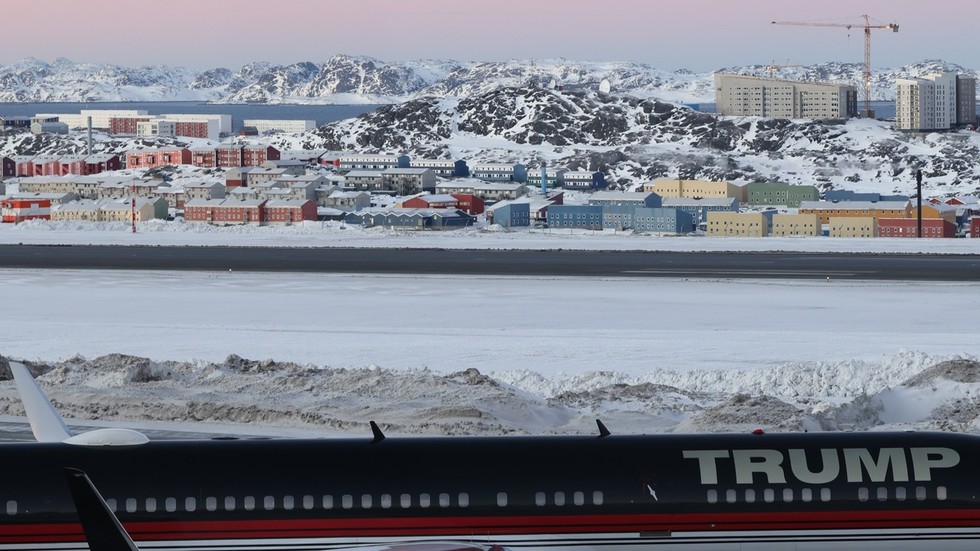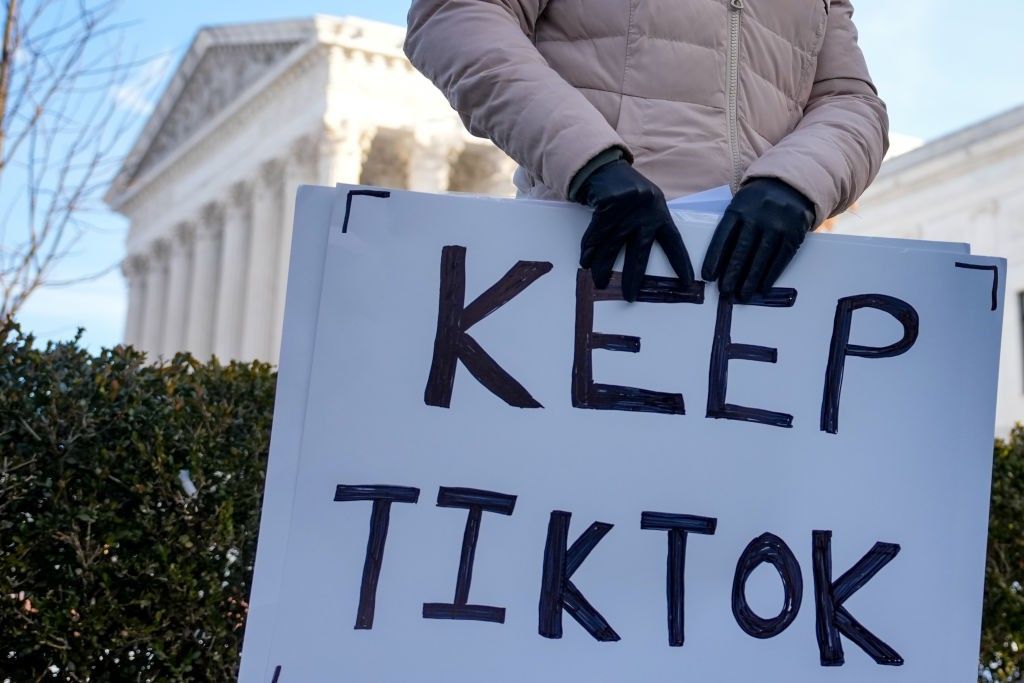Hurricane Beryl is shattering storm records on its path through the Caribbean, having already killed several people as it leaves tremendous destruction in its wake.
After it passed through Grenada, Prime Minister Dickon Mitchell said Beryl “flattened” the archipelagic nation’s small island of Carriacou and that, with communication and power lines cut and many roads made impassable, officials are having trouble reaching affected areas.
In neighboring St. Vincent and the Grenadines, the hurricane destroyed almost all houses in the 9 sq. km. Union Island, Prime Minister Ralph Gonsalves said.
Beryl, which had been downgraded from Category 5—after becoming the earliest hurricane of such strength in the Atlantic—nonetheless battered Jamaica next. The capital experienced mass power outages on Wednesday, and hundreds of people were sent to relocation centers, as forceful winds felled trees and blocked roads, according to the government’s information service. And as the U.S. National Hurricane Center expects devastating winds, life-threatening storm surge, and damaging waves to continue to batter Jamaica, Prime Minister Andrew Holness warned on Wednesday that the country has not yet “seen the worst of what could possibly happen.”
Read More: Why Beryl’s ‘Unprecedented’ Timing Is a Sign of Climate Change’s Impact on Extreme Weather
As images and videos of the havoc Beryl continues to wreak on the Caribbean circulate around the world, humanitarian aid groups are calling for donations to assist the communities and people who have been displaced or affected by the hurricane.
While material donations—such as water bottles, canned food, and clothing—are often well-intentioned, USAID has said that when natural disasters strike, monetary donations are actually best for a number of reasons, including minimizing shipping and other logistical costs for organizations and maximizing flexibility in aid operations.
Below are some organizations and charities mobilizing to help those impacted by Hurricane Beryl.
Airlink
Airlink, a humanitarian aviation organization that collaborates with NGOs to deliver relief workers and supplies around the world, is helping groups including Mobile Medics International (see below) overcome logistical hurdles to provide support to the Caribbean and the region’s many small islands. By providing airlifts and coordination, Airlink says its strategic approach is critical “to get the right aid to the right place at the right time.”
You can support Airlink’s mission and response to multiple crises including Hurricane Beryl through its website, which also accepts donations of United frequent flyer miles.
Americares
Health-focused relief and development organization Americares said it is responding to “urgent medical needs” in the wake of Beryl, and is calling for donations, which can be specifically allocated to “Hurricane Beryl Relief.”
In a July 2 press release, the group said it will send a response team to Jamaica this week to support the health needs of survivors throughout the region.
“A hurricane of this magnitude across multiple islands presents major logistical challenges,” Americares director of international emergency response Cora Nally said. “It’s going to take a lot of coordination between relief organizations and local partners and governments to ensure aid reaches those most in need. Based on our past experience with similar storms, we can anticipate survivors will need assistance with mental health support and replacing medications lost in the storm.”
CARE
International anti-hunger and anti-poverty organization CARE said in a post on X that it is, in partnership with the Caribbean Gender Alliance, “coordinating closely with locally-led, women-focused civil society organizations in Barbados, Grenada, Jamaica, St. Lucia, St. Vincent and the Grenadines, and Trinidad and Tobago to assess the needs of the most vulnerable (especially women and girls) and provide emergency relief as needed.”
CARE says it “takes great pride in our financial efficiency and accountability” and that over 90% of its expenses go to program services.
A spokesperson told TIME that the group, through its Hurricane Beryl Emergency Fund, will provide Beryl survivors with cash assistance to help families meet essential needs and livelihood support to help restore sources of income and ensure long-term recovery for families and individuals.
Catholic Relief Services
The international humanitarian aid agency of the U.S. Catholic Church has also set up a donation drive. “Our Church partners are often the first responders—the first places people go for help. CRS will support their efforts in assisting and caring for their communities as we help meet the range of needs in this moving crisis.”
Catholic Relief Services tells TIME that it has “staff on the ground evaluating the damage” and has already “been able to ship out pre-positioned emergency supplies like tarps and hygiene kits.”
Convoy of Hope
Faith-based American nonprofit Convoy of Hope says it is “working in the region to assess needs and provide much-needed relief supplies.” Disaster services are among the key focuses of the group, which was founded in 1994 and partners with local churches, businesses, civic organizations, and government agencies, to distribute essential emergency supplies “such as food, clean water, hygiene items, and more” and to provide “long-term assistance, when possible, to help people rebuild and recover.”
Convoy of Hope accepts donations in a variety of forms through its website.
Crisis Response International
CRI, a Christian nonprofit, trains and deploys volunteer disaster responders, and it has called on those who have completed the training to volunteer for deployment to Carriacou, where the group says it is mobilizing to assist with debris removal and distribution of emergency supplies as well as to provide chaplains who can offer emotional and spiritual care. In addition to trained volunteers, the group is also seeking donations and prayers.
Direct Relief
Direct Relief, a U.S.-based humanitarian aid nonprofit that’s active in all 50 U.S. states and more than 80 countries, said it is already engaged in relief efforts on the ground in the Caribbean. It’s working with local officials in St. Vincent and the Grenadines and Grenada as well as partner organizations like Medical Professionals on a Mission, to assess emergency response needs and provide medications, supplies, and temporary shelters.
Direct Relief accepts donations online with an option to select “Hurricane Beryl Response” as the specified target of your support.
Empact
Empact International, also known as Empact Northwest, is a nongovernmental nonprofit founded in 2010 and based in Washington state that provides advanced rescue training, emergency systems development, and disaster response services worldwide “using a team of dedicated staff and volunteers made up of fire service, healthcare, dispatch, and emergency management professionals.”
In a post about Hurricane Beryl on LinkedIn on Tuesday, the organization said: “Empact’s disaster response teams are on high alert, ready to deploy at a moment’s notice. Our specialized rescue professionals and canine units stand prepared to: Conduct search and rescue operations; Provide emergency medical care; Assist with evacuations; Support local emergency responders.”
The post also solicited donations, which it says, “fuels our ability to respond swiftly and save lives: $50 provides emergency supplies for a family; $100 fuels our rescue vehicles; $250 equips a team member with essential gear; $500 supports our canine search teams.”
Fauna & Flora
International conservation group Fauna & Flora says that its partner organization in St. Vincent and the Grenadines, Union Island Environmental Alliance, “is in serious need of help.”
“Union Island is a shining beacon of our conservation efforts in the Caribbean—from preserving species to adapting to climate change—but the 150mph winds have demolished our ability to protect nature there,” the group said in its call for donations.
“Nature is resilient and so are the people of Union Island—but they urgently need your help,” it added. “Please donate today, and help our partners rebuild their lives and livelihoods and rescue our conservation programme.”
Global Empowerment Mission
From its headquarters in Doral, Fla., disaster relief mission group Global Empowerment Mission says it is “already packing supplies, organizing logistics, and getting team members on the ground.” The group is seeking drop-offs of items like tarps, canned foods, and hygiene kits, as well as volunteers to help pack these goods, and it is accepting monetary donations online for its Hurricane Beryl fund.
Mobile Medics International
According to local news in Alaska, the Anchorage-based nonprofit Mobile Medics International will be sending its founder and executive director Teresa Gray as well as eight team members to Jamaica on Thursday, after Beryl passes through the nation.
Gray said her team of medical professionals will be equipped with backpacks so that they can treat people “where they are” with equivalent care to an ambulance and help “keep them out of the field hospital if possible.”
Gray said people who want to help should donate to mobile medic operations, like MMI: “This hurricane has created a tremendous amount of destruction. I encourage people to find an organization that is on the ground, that speaks to them.”
Red Cross and Red Crescent Societies
The International Federation of Red Cross and Red Crescent Societies posted an infographic on social media for those in the path of Beryl with guidance on what to do before and during a hurricane. It also said it was monitoring the situation alongside local Red Crosses in the region.
Early Tuesday, the Grenada Red Cross Society shipped tarps and shelter kits, as well as blankets and pillows, to displaced residents in Carriacou and Petite Martinique, two of Grenada’s most affected islands. More information about the group’s work on the ground and how to donate can be found here.
Meanwhile, Canada’s Red Cross is accepting monetary donations for victims of Hurricane Beryl that it says will be used for providing immediate relief and supporting recovery efforts, as well as resilience and preparedness activities for future events.
The American Red Cross said on Wednesday that it is ready to respond to Beryl with disaster teams and relief supplies deploying over the Fourth of July holiday weekend to potential impact areas, which may include parts of the U.S. Donations, including specifically for “Disaster Relief,” to the American Red Cross can be made here.
Samaritan’s Purse
The North Carolina-based Christian nonprofit Samaritan’s Purse said on Tuesday that it flew a 13-person disaster response team and more than 24 tons of relief items to Grenada for Hurricane Beryl victims. “We started building out pallets of cargo before the hurricane even made landfall,” the group’s president Franklin Graham said. Among the items it sent were tarps, solar lights, a desalination water unit, and a mobile medical unit.
You can donate to Samaritan’s Purse’s Hurricane Beryl relief efforts here.
Sandals Foundation
The Sandals Foundation, the philanthropic arm of Jamaican hotel operator Sandals Resorts International, set up a “Disaster Relief” initiative after Hurricane Beryl hit Barbados, Grenada, St. Lucia, St. Vincent and the Grenadines, and most recently Jamaica. “When one island hurts, we come together to lend a hand,” the organization posted on X.
Donations—100% of which go to the foundation’s programs and initiatives, as administrative costs are covered by Sandals Resorts International—can be made online.
Save the Children
“As the climate crisis intensifies the frequency and severity of extreme weather events and coastal areas become more populated,” international child welfare advocacy group Save the Children said in a blog post about Hurricane Beryl, “millions of children in storm-prone areas face increased risks like floods, landslides, damage to homes and schools, heightened exposure to disease, and even death.”
The group shared safety tips to help protect children and called for donations to its Children’s Emergency Fund.
United Nations
The U.N. has several bodies that specialize in humanitarian operations.
Its World Food Programme has staff on the ground in Barbados, Grenada, St. Lucia, and St. Vincent and the Grenadines. “WFP is working to support regional and national disaster management agencies to ensure that the people impacted by this storm are able to meet their essential needs and get back on their feet as quickly as possible,” Brian Bogart, WFP Caribbean multi-country office director designate, said in a July 1 press release.
Those in the U.S. can make a 100% tax-deductible donation to WFP USA here. “$75 dollars can provide a family with an emergency box containing enough food for an entire month,” the group says.
The U.N. also has a Crisis Relief arm that solicits donations to and manages an Emergency Fund, which it then disburses to various NGOs that deliver “life-saving aid at the front lines of the world’s most severe crises.” While U.N. Crisis Relief does not have a specific appeal for victims of Hurricane Beryl, it does have a Climate Action Account, which it describes as “our most effective tool to support timely and life-saving humanitarian action in response to climate-related disasters.”
World Central Kitchen
Celebrity chef José Andrés’ nonprofit global food relief organization World Central Kitchen said its team is mobilizing to Antigua, Grenada, and St. Vincent and the Grenadines to work with partners and provide meals to survivors of Hurricane Beryl.
You can support WCK’s efforts here.




















Discussion about this post